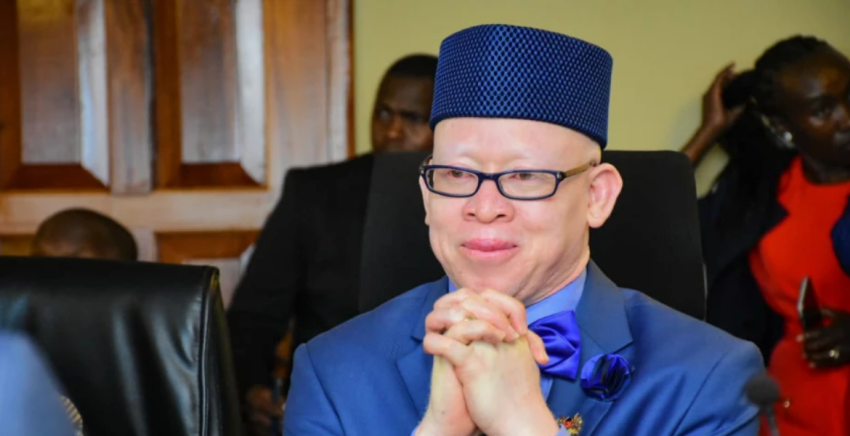NAIROBI, Kenya – April 14, 2025
The Government of Kenya has moved to clarify growing public speculation surrounding the Finance Bill 2025, affirming that no such bill has been proposed, drafted, or tabled in Parliament. Speaking at the Kenyatta International Convention Centre (KICC), Government Spokesperson Hon. Sen. (Dr) Isaac Mwaura, CBS, addressed the nation on matters of taxation, agriculture, healthcare, education, and rising gender-based violence.
No Finance Bill Yet – Public Participation Will Follow
Sen. Mwaura emphasized that the 2025/26 budget process is still ongoing and the Finance Bill will only be introduced after the release of the Draft Budget, expected post-April 30th. He dismissed claims of secret tax proposals as “outrageous misinformation,” urging Kenyans to await formal tabling in Parliament, followed by thorough public participation.
He underscored the government’s commitment to fiscal consolidation, improving accountability in spending, and growing revenue through tax reforms—not increased taxation, contrary to online rumors.
Agriculture: Farmers Enjoy Guaranteed Minimum Returns
In line with the Kenya Kwanza Administration’s Bottom-Up Economic Transformation Agenda (BETA Plan), the government continues to roll out the Guaranteed Minimum Returns (GMR) initiative. This policy has brought tangible gains to farmers across the country:
- Macadamia prices have risen from KES 24 to KES 100 per kilo.
- Coffee farmers now earn an average of KES 130 per kilo, up from KES 50.
- Milk prices increased to KES 50 per litre from KES 37.
- Sugarcane growers are earning KES 5,300 per metric ton, compared to KES 4,500.
- Miraa, tea, avocado, and leather sectors have also seen significant improvements in prices, market access, and value addition.
Healthcare: Over 19 Million Kenyans Now Under Taifa Care
The government’s flagship health program, Taifa Care, introduced in October 2024, has seen a 146% increase in registration—growing from 8 million NHIF members to over 19 million Kenyans today. The universal healthcare plan now covers critical services including emergency care, maternal health, cancer, diabetes, and mental health.
A poignant example of its impact is the case of Amina, a single mother whose son is undergoing cancer treatment. Under the new reforms, ICU/HDU rates have been raised from KES 4,480 to KES 28,000, and oncology coverage increased to KES 550,000 per patient.
The system has been upgraded to process hospital claims by the 14th of each month, easing hospital burdens. Plans are also underway to allow daily premium payments for low-income families.
Health Crises: Government Responds Swiftly to Kala-azar and Cholera Outbreaks
The Ministry of Health is actively addressing the Kala-azar outbreak in Wajir, which has affected over 600 people and claimed 33 lives. Mobile labs and a new blood bank have been deployed, leading to more recoveries than new cases.
Simultaneously, cholera outbreaks in Nairobi, Migori, and Kisumu have seen 100 reported cases and six deaths. Rapid response teams, isolation centers, and public awareness campaigns have been activated to curb the disease’s spread.
Education: Crackdown on Certificate Withholding and Drama Festival Disruption
The government is investigating incidents at Butere Girls High School during the Kenya National Drama and Film Festival. The involvement of unapproved trainers and deviation from adjudicated scripts prompted a review of regulations. The Ministry of Education stresses that schools must remain apolitical and safe spaces for learning.
In addition, a directive has been issued to end the illegal withholding of examination certificates by school principals. County Directors of Education have 14 days to report on uncollected certificates, and stern disciplinary actions await those in violation.
Femicide and Gender-Based Violence: A National Crisis
Over 100 women have lost their lives to femicide in Kenya over the past six months. One of the most heartbreaking cases was that of 24-year-old Esther, whose murder sparked national outrage. The government, through a multi-agency approach, is strengthening its response with legal reforms, nationwide forums, and a revised GBV policy awaiting Cabinet approval.
In January 2025, a Technical Working Group was formed to review key laws and strategies, with the aim of ending femicide. Kenya also signed the AU Convention on Eliminating Violence Against Women and Girls in February 2025, reaffirming its commitment to the safety and dignity of all citizens.
Conclusion
Sen. Mwaura concluded by reiterating the government’s dedication to transparency, economic empowerment, accessible healthcare, quality education, and the protection of human rights. “We call upon all citizens to remain engaged, discerning, and united in our collective pursuit of a just, prosperous, and resilient Kenya,” he stated.




